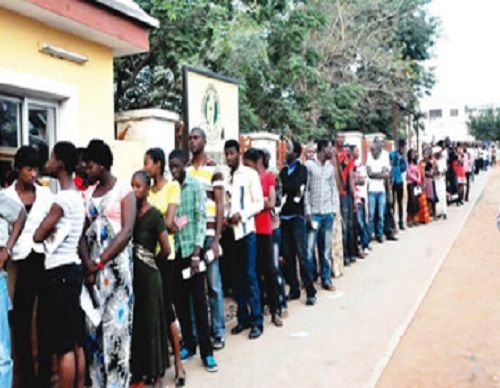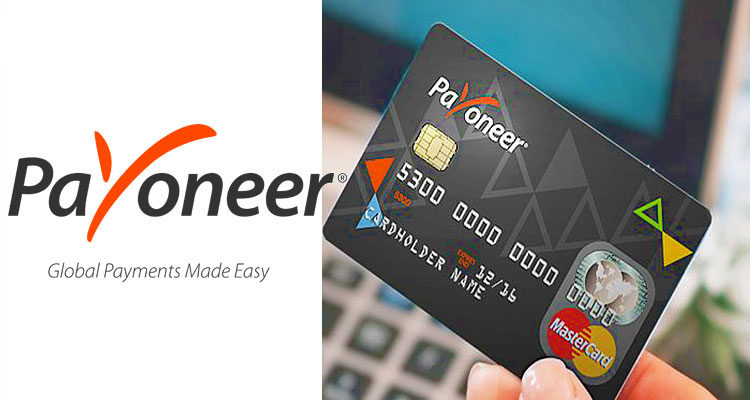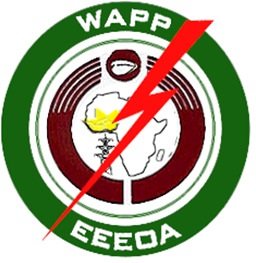Sending money to Nigeria has become much easier as time has passed, but in this post, you will learn how to send and receive money into a Nigerian domiciliary account. And, as a business or individual receiving funds from outside the country, there will come a time when you, too, will be required to make and receive payments in a foreign currency. This is the time when you’ll require this type of account.
A domiciliary account is a type of current account that allows you to fund it with foreign currencies such as dollars, pounds, or euros and use it to conduct foreign transactions. A domiciliary account allows you to open accounts in currencies other than Naira. You can fund these accounts with cash, traveler’s checks, or foreign currency cheque deposits.
CBN New Policy on Domiciliary Account 2021
Before we go into the domiciary account, there are a few things to consider, which is from the Central Bank of Nigeria (CBN). The CBN has implemented a new cash-based transaction policy that imposes a cash handling penalty on daily cash withdrawals exceeding N500,000 for individuals and N3,000,000 for corporate entities.
The new bank policy on cash-based transactions (withdrawals) intends to reduce the quantity of actual currency (coins and notes) in circulation while encouraging more electronic-based transactions (payments for goods, services, transfers, etc.)
Furthermore, the CBN has rejected misleading news advising the public to change their domiciliary account balances into naira.
Operators of domiciliary accounts and other members of the banking public are advised to ignore these fictitious documents and malicious rumors and carry on with their legitimate foreign exchange transactions, as we have no doubt that these rumors are only intended to smear the CBN’s integrity and create chaos in the system.

How To Receive Money Into A Nigerian Domiciliary Account
To receive money into a Nigerian domiciliary account, you will need the following information…
- Account number
- Name on the account
- Name of the bank
- Branch address of the bank
- Routing Number
- Swift Code. (You can find your bank’s Swift Code by Googling it)
To send money, you will use Online Banking or your local bank. The steps are nearly identical depending on the bank. After receiving your bank notification alert, go to your bank and withdraw the funds by filling out your foreign currency withdrawal slip. Following that, you will receive your money in the currency of your choice, which could be US dollars or Euros.
Then you can proceed to the Bureau De Change to exchange it for your local currency. The Bureau De Change is an official meeting place for foreign currency buyers and sellers. There, you can exchange your dollars for Naira or any other foreign currency.
Benefit of Having a Domiciliary Account in Nigeria
Receive Any Currency Directly
To Your Account: The majority of the issues we encountered were related to the official bank currency covert. Traditionally, the bank will convert any currency sent to you from abroad, which is not always at the black market rate.
A dollar, for example, is approximately N415. When you deposit foreign currency into your local bank account, the bank will convert it at their official rate, which is currently around N415 rather than N470.
With a domiciliary account, however, you will be the one to convert your foreign currency to Naira. You can sell it at any price and use it to pay for foreign hosting or to buy anything on a foreign website at a lower cost.
Consider bank charging me N470 every time I make a foreign payment with my Naira MasterCard, but if they want to convert my foreign currency to Naira, they will charge me N415 per $1. I’m not sure about you, but I think this is pure deception.
Pay for International Transactions: As previously stated, you can pay for any foreign transaction anywhere in the country with a domiciliary account and your dollar MasterCard in your wallet. You can renew your hosting plan and purchase any paid software or game from the Google PlayStore. This is one of the most advantageous aspects of a domiciliary account for bloggers and business owners.
Control of an Unstable Currency: It is no longer news that the Nigerian naira has fluctuated over the years. The Naira exchange rate has been a source of concern, particularly for those who import from other countries.
You don’t have to worry about anything with a domiciliary account as long as you have a fund on your account that you can use to buy and carry out transactions.
Saving in Foreign Currency: Yes, you read that correctly. The domiciliary account at First Bank allows you to save in US dollars, British pounds, or Euros. In addition, your money will be valued at the current exchange rate.
Best Domiciliary Account in Nigeria
Every bank in Nigeria allows customers to open domiciliary accounts. However, there are a few standouts that make managing your account more worthwhile.
So, in no particular order, here are the best domiciliary accounts in Nigeria with which you can open one. Others are excellent, but these are at the top of the list.
1. Guaranty Trust Bank
When it comes to creating a domiciliary account, Guaranty Trust Bank, also known as Guaranty Trust Holding Company PLC, is a leading bank in Nigeria that will give you good value for your money. The GTB domiciliary account can only be filled with cash inflows and cash deposits and is only available in US Dollars, British Pounds, and Euros.
Advantages of a GTB domiciliary account
- You have access to banking services 24 hours a day, seven days a week through a variety of e-channels.
- You can transfer funds in foreign currency to domiciliary accounts of other banks in Nigeria and abroad.
- You can also make foreign currency cash withdrawals from any GTBank branch.
2. Zenith bank
Zenith Bank is also a renowned Nigerian bank with excellent customer service and products. Ordinary domiciliary account and Cash domiciliary account are the two types of domiciliary accounts offered by Zenith Bank.
While transfers are permitted with the Ordinary domiciliary account, they are not permitted with the Cash domiciliary account.
However, with the Cash domiciliary account, you have access to EazyMoney as one of the possible channels.
Advantages of a Zenith Bank domiciliary account
- Its opening balance is zero.
- Zenith Bank provides internet banking services.
- It also provides debit card services (USD)
- Mobile banking is available to you.
- Alerts can be sent to you by email or SMS.
- Standing orders.
- It only accepts the following foreign currencies: USD, GBP, and EUR.
3. Fidelity Bank
Fidelity Bank provides you with a foreign currency account to conduct overseas or foreign transactions. It accepts US Dollars, British Pounds, and Euros as payment. It allows inflows to reach a chosen account without being affected by fluctuations in the local exchange rate, which varies based on the currency in use.
Advantages of a Fidelity Bank domiciliary account
- A minimum opening balance of $50, €50, or £50 is required.
- A minimum operating balance of $30, €30, or £20 is required.
- Call/demand and fixed deposit interest rates
- Internet banking, email transaction alerts, and statements are all available to you.
- For shares traded on the NSE, there are investment facilitation services.
- You have the option of opening a domiciliary and a current account in Naira.
4. First Bank
First Bank Domiciliary accounts can be used to expedite international transactions and can be accessible by cash deposits, foreign currency cheque deposits, or traveler’s checks.
There are two types of domiciliary accounts offered by First Bank: FirstDom Plus and Domiciliary account. FirstDom Plus is a foreign currency deposit account designed specifically for existing and prospective domiciliary customers with balances of $5,000 or more. It offers a competitive interest rate as well as lower bank fees. This account is only available to individuals and corporations, whereas a domiciliary account allows you to keep money in US dollars, pounds sterling, or euros, with your money valued at the current exchange rate. This account facilitates in the smooth operation of your foreign commercial activities. This account is only available to SMEs and corporate entities.
Advantages of a First Bank domiciliary account
- A minimum initial deposit of $500, €500, or £300 is required.
- A $100, €100, or £50 minimum operating balance is required.
- There is no restriction to how many withdrawals you can make in a month.
- Your cash withdrawal is charged at a flat rate of 0.5 percent each transaction.
- Inter-sol transactions are permitted (account owners only).
- A FCY deposit that is guaranteed
- There are no limitations on the amount of withdrawals that can be made.
- Inter-sol withdrawals are permitted (account holders only).
How to Open a GTBank domiciliary account in Nigeria?
The requirements for opening a GTBank domiciliary account in any part of Nigeria are rather simple. Here’s how to open a GTBank domiciliary account in Nigeria for your convenience.
You can open a domiciliary account with GTBank if you live in Nigeria. To do so, take the following steps:
- Fill out and sign a form to open a domiciliary account.
- a copy of your photo ID (driver’s license, international passport, or national identification card)
- a single passport photo
- Two (2) reference forms are required to be completed by current bank account holders who are not salaried.
- Utility bill issued in the last three months
What if you don’t live in Nigeria or you’re not a Nigerian?
You can still open a GTBank domiciliary account. You’ll need the following items to do so:
- Fill out a form to open a Non-Resident Account.
- a single passport photo.
- A notarized copy of a foreign international passport or international drivers’ license, such as a Nigerian passport, voter’s card, or drivers’ license.
- Proof of address is required (stamped reference letter or a stamped bank confirmation that shows your address)
- Please provide one of the following references:
- A stamped reference letter from your bank abroad or a stamped banker’s confirmation
- Two (2) current Nigerian bank account holders’ reference papers
- If you want to open a joint account, provide a copy of your marriage certificate.
Of course, there are other options and money transfer methods available, such as wire transfers through WesternUnion and cash pickups.
Also, other top Nigerian banks with whom you can open a domiciliary account, such as those listed above, also provide good value for money. There are, however, domiciliary account limits, which we’ll go over in more detail later in this article.
Gtbank domiciliary account limit
Some Nigerian banks have begun to impose new restrictions on the amount of money that can be transferred from domiciliary accounts to cash lodgements.
According to our sources, the Gtbank domiciliary account limit (regular domiciliary account) ranges from $5,000 to $10,000.
“Foreign currency transfers through cash deposits are now limited to $5,000 per month.”
This means that if the source of funds is a cash deposit into a domiciliary account, transfers will be limited to $5,000 per month.
Cash deposits in foreign currencies other than the US dollar may be made into domiciliary accounts (up to a monthly maximum of $5,000), but not for transfer purposes.”
This was shown to be in agreement with a 2020 plan. It was learned that this was in conformity with a Central Bank of Nigeria directive dated 2020.
About western union money transfer
Many Nigerians living abroad use Western Union to send money back home. It may be faster than sending an overseas bank wire, and you won’t have to deal with bankers. The procedure is very similar.
Western Union, on the other hand, inspects these transfers more closely since it is mandated by federal law to take steps to guarantee that their customers are not utilizing the service for fraud or money laundering.
Because Western Union makes money on currency exchange, you’ll pay a reduced cost for international transactions. For example, if you were to send $500 to Nigeria, you’d probably just have to pay around $10.
It may be a cost-effective option for persons working in the United States to send money home to relatives who do not have
bank accounts.
In conclusion, having a domiciliary account is extremely beneficial, and at this point, some large banks should provide this service to their customers. A domiciliary account allows one to conduct international transactions without difficulty. You can send and receive money in foreign currencies. Hope this article on receive money into a Nigerian domiciliary account was helpful? Do let us know via the contact form below.
Frequently Asked Questions (Faqs)
The following questions are commonly asked by readers, and they are answered on this page. Continue reading to find out:
Can I receive money directly into my domiciliary account?
Yes, you can receive money into your domiciliary account by wire transfer from another country. There are a variety of methods for sending and receiving foreign currency; you should always check with your bank’s customer service department to see which ones they accept.
Can I deposit Naira to my domiciliary account?
No. A domiciliary bank account is one that does not accept Naira as a currency (Nigerian currency). It does however, accept foreign currencies, such as euros, dollars, and pounds. The domiciliary account functions in the same way as any other savings account.
Can I receive pounds in my domiciliary account?
Yes. You will be able to receive and complete transactions in foreign currencies such as pounds, US dollars, and euros. You will, however, need to open a Pounds Dom account in your bank as your main account.
How do I fund my GTB domiciliary account?
You can fund your account through traveler’s cheques, foreign currency cheque deposits and cash inflows and deposits. Withdrawals are also possible at any GTBank branch.





















